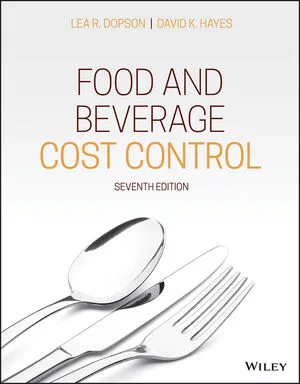Circana releases mid-year 2024 food, beverage market outlook
Insights show 2023 prediction of return to growth for retail food, beverage on track
Circana, an advisor on the complexity of consumer behavior, released new Circana Compass insights, providing a comprehensive update on the 2024 performance of the global retail food and beverage (F&B) industry and an outlook for 2025. The data reveals a strong alignment between Circana’s previous forecasts and current market realities, offering valuable guidance for industry players as they navigate the second half of the year and plan for the next.
In November 2023, Circana forecasted that 2024 would signal a return to growth for the retail F&B sector after three years of volume decline. The projected volume increase of 1% that Circana anticipated was above historical norms, following a 1% drop in 2023, coupled with the historically low-price increase of 1.6%, down from 5.7% in 2023 and 11.4% in 2022. As a result, top-line growth was expected to slow to 2.3%, compared with 4.7% in 2023 and 9.5% in 2022.
As of mid-2024, Circana’s projections have proven highly accurate, with the F&B industry showing volume growth of 0.8%, a price increase of 1.4%, and top-line growth of 2.2%, all closely aligning with the original forecast.
“Following several years of economic volatility, we’re now seeing signs of stabilization across various sectors, including food and beverage,” said Sally Lyons Wyatt, global executive vice president and chief advisor at Circana, in a statement. “While we anticipated greater support from an improving economy, the shift from away-from-home to in-home consumption helped keep our projections on track. Manufacturers will need to strategically assess how to stimulate demand and drive profitable growth, and Circana provides the data-driven insights necessary to inform those decisions.”
Inflation has eased across the F&B sector in 2024, impacting all segments. Despite ongoing concerns about pricing, bifurcation in F&B purchases continues — some consumers are trading up to premium-priced products and super-premium items, while others are opting for private brands.
As consumers increasingly value “just-in-time” convenience and quality in their food choices, they are making smaller, more frequent trips and favoring quick-prep options from produce, refrigerated, and deli departments. The frozen and refrigerated segments have outperformed initial expectations, with refrigerated trailing only produce as a leading department in volume growth year-to-date 2024. On the other hand, the seafood and liquor segments have experienced volume declines.
Lyons Wyatt added: “As we approach the end of 2024, we anticipate the year will close out near our mid-year projections. We expect volume growth will ease to 0.5-1%, with some potential softening later in the year as fast food ‘price wars’ could impact retail F&B growth, assuming current economic conditions hold. Year-over-year price realization is projected to increase slightly to 1.5-2%, driven by slowing promotional investments and the introduction of new price increases. This will result in overall top-line growth of 2.2-2.7% for 2024.”
When comparing the U.S. to other global regions, Circana expects 2024 retail F&B growth in both EMEA and APAC to outpace that of the U.S. in terms of top-line growth, with both regions projected to achieve 4-5% growth. In APAC, this growth is anticipated to be entirely price-driven, with flat unit sales. In EMEA, the strength in top-line growth is primarily due to increased price realization, with volume growth comparable to U.S. levels.
Looking ahead to 2025, Circana projects a slight uptick in top-line dollar growth, expected to be between 2.5-3.5%, driven primarily by increased price realization between 2-3%, while volume growth is anticipated to moderate between 0-1%.
Circana’s F&B outlook is developed using econometric demand models leveraging Circana’s Demand Forecasting Platform. More than 100 variables are analyzed to test hypotheses for each model, supported by a machine-learning algorithm and more than 500 random forest models to determine the most important causal factors. Forward-looking input variable assumptions are developed using historical trends and insight from industry experts. This platform allows Circana to run scenarios and estimate future sales, breaking them down by their driving factors, it says.
Looking for a reprint of this article?
From high-res PDFs to custom plaques, order your copy today!





